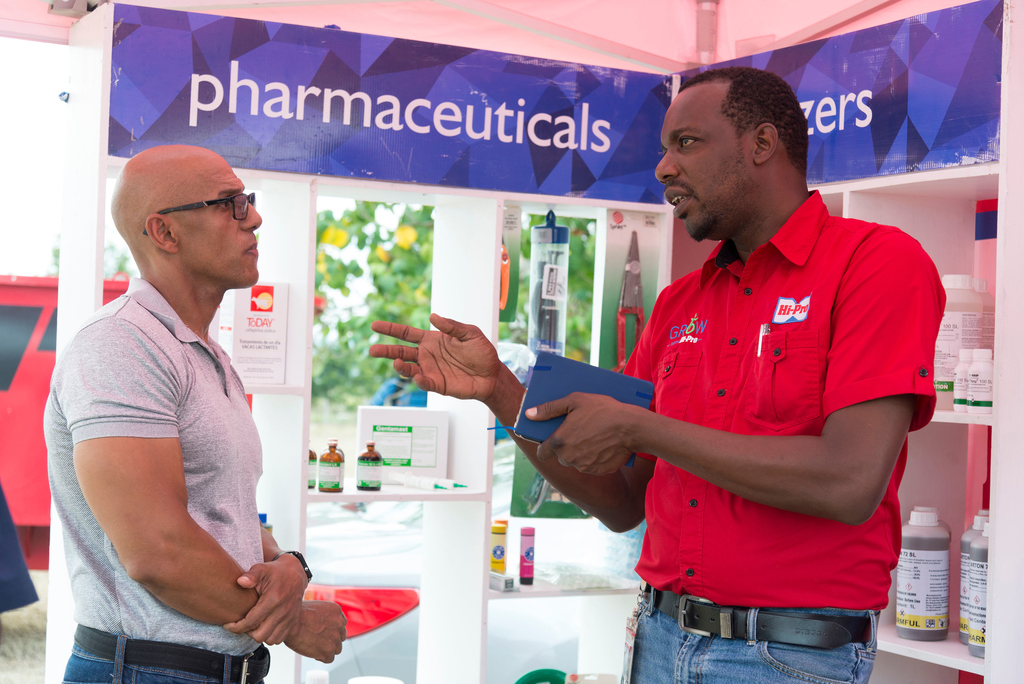There is an increasing demand for chevron (sheep) and mutton (goat) meat on the island, but while the production of chevron is consistent, there has been a decline in the local production of mutton.
In making his presentation on “Preventative Health Care for Small Ruminants” at the recent annual general meeting of the Small Ruminants Association of Jamaica held in Bodles, St. Catherine, Hi-Pro veterinarian Dr O’Shane McHugh warned that in seeking to expand local goat and sheep production, farmers must adopt best practices on their farms in order to meet international standards. These include proper record keeping of breeding programmes, the pedigree of each animal, as well as nutritional and herd health programmes.
He noted that among the challenges facing the industry were: praedial larceny; canine attacks and parasitic infestations amongst other diseases.
"These are some of the reasons why we encourage proper hygiene and sanitation at each farm for persons going in and out of the immediate environment”, he said.
“One of the critical areas that need the attention of goat and sheep farmers is herd health management. It is a major factor for optimum performance and profitability. Each farmer must introduce a plan to create and keep the herd healthy, as unhealthy animals will have reduced performance in meat and milk and pose a risk for disease and parasite transmission. In fact, it is more economical to prevent disease outbreak than to get rid of it by treatment,” Dr McHugh told his audience.
 Dr. Kirk Harris (right), Hi-Pro vet makes a point to Dr. Paul Cardogan, Veterinarian at the Hi-Pro booth at the SRAJ Annual General Meeting.
Dr. Kirk Harris (right), Hi-Pro vet makes a point to Dr. Paul Cardogan, Veterinarian at the Hi-Pro booth at the SRAJ Annual General Meeting.
In using abstract figures to drive home his point, the Hi-Pro Vet noted that if it costs $1 to prevent the problem, the farmer would have to spend $10 to correct the problem and $100 to deal with the negative impact of the problem on the operations of the farm.
With that in mind, Dr McHugh suggested that each farmer should build an imaginary wall of herd health to guard their animals against parasitic and infectious diseases; malnutrition; lameness; infertility and protect their stock through such biosecurity initiatives as footbaths and appropriate gears to be worn by workers, as well as a balanced ration inclusive of supplementary minerals and clean, potable water.
Records show that in 2015 there were approximately 700,000 does and ewes on the island, but with the growing demand since then for goat and sheep meat, the sector currently needs three million animals to be self-sufficient in supplies and further reduce the foreign exchange spend on importation.

